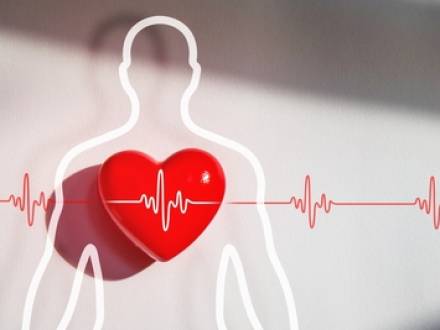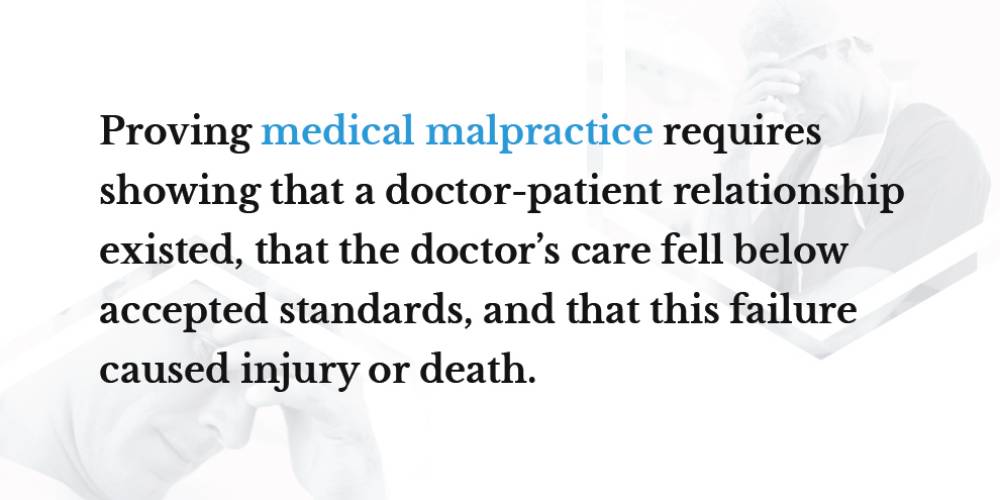Undiagnosed Hypertension Can Lead to Fatal Strokes
 High blood pressure, or hypertension, is often called a "silent killer" because it can progress unnoticed until it causes devastating consequences. For many patients, a routine blood pressure screening is the only way to detect this dangerous condition. When a doctor fails to diagnose hypertension, the results can be catastrophic, leading to fatal strokes or other life-altering events. Throughout Winnebago County, victims and their families may have the right to pursue compensation if medical malpractice contributed to their loss. Call our Rockford, IL medical malpractice attorneys if you or a loved one have suffered because of a delayed hypertension diagnosis.
High blood pressure, or hypertension, is often called a "silent killer" because it can progress unnoticed until it causes devastating consequences. For many patients, a routine blood pressure screening is the only way to detect this dangerous condition. When a doctor fails to diagnose hypertension, the results can be catastrophic, leading to fatal strokes or other life-altering events. Throughout Winnebago County, victims and their families may have the right to pursue compensation if medical malpractice contributed to their loss. Call our Rockford, IL medical malpractice attorneys if you or a loved one have suffered because of a delayed hypertension diagnosis.
Why Is Early Diagnosis of Hypertension Important?
Hypertension happens when the force of blood against artery walls is consistently too high. Left untreated, it can damage arteries, strain the heart, and increase the risk of strokes, heart attacks, kidney failure, and vision loss. According to the American Heart Association, strokes are one of the leading causes of death and long-term disability in the United States.
A timely diagnosis allows patients to make lifestyle changes, take medication, and monitor their condition to prevent these severe complications. When physicians do not detect hypertension, patients lose the chance to control the disease before it causes irreversible harm. Proper screening and follow-up care are essential, particularly for high-risk groups such as elderly patients, pregnant women, and individuals with diabetes.
How Hypertension Develops Over Time
Hypertension typically develops gradually over years due to a combination of lifestyle and genetic factors, such as:
-
Excessive salt intake
-
Obesity
-
Physical inactivity
-
Chronic stress
-
Certain underlying health conditions like kidney disease
Each of these can contribute to rising blood pressure. Primary (essential) hypertension has no identifiable cause but is common in adults, while secondary hypertension results from another medical condition and can develop more rapidly. Understanding how these factors interact is critical for physicians tasked with preventing complications.
Signs of Hypertension That Doctors Should Recognize
Although hypertension is often asymptomatic, there are warning signs that can suggest dangerously high blood pressure. These include frequent headaches, dizziness, shortness of breath, vision problems, chest pain, and nosebleeds. In some cases, fatigue or confusion can signal severe hypertension that requires immediate medical intervention. Doctors should carefully screen patients reporting these symptoms, especially when combined with known risk factors.
How Medical Negligence Leads to Missed Hypertension Diagnoses
A missed hypertension diagnosis often results from a breakdown in basic standards of care. Examples of negligent actions include failing to take blood pressure readings during routine visits, ignoring high readings or attributing them to stress without follow-up, misreading or failing to properly interpret test results, and not referring patients for further evaluation or treatment despite risk factors such as obesity, smoking, or family history.
Doctors are expected to follow established guidelines for screening and treating hypertension. A breach of this duty can lead to tragic outcomes. Nurses, physician assistants, and even pharmacists can also play a role in monitoring blood pressure, and failure to communicate concerns up the chain to doctors can result in a missed diagnosis.
Fatal Strokes and the Link to Hypertension
Strokes occur when blood flow to part of the brain is interrupted, depriving brain cells of oxygen. Hypertension is the leading preventable risk factor for strokes because it damages arteries and makes clots more likely to form. Hemorrhagic strokes, caused by ruptured blood vessels, are particularly associated with uncontrolled high blood pressure.
Families dealing with the aftermath of a fatal stroke often face both emotional trauma and financial strain. In addition to grief, they may be overwhelmed by medical bills, funeral costs, and the loss of a loved one’s income and companionship.
Even when strokes are not fatal, victims often need full-time assistance and personal care following a stroke. Many years of physical therapy, traditional talk therapy, and very expensive medication may be necessary. The bills for these treatments can add up quickly and overwhelm a family already suffering from the trauma of the stroke itself.
If medical negligence played a role in failing to control high blood pressure, a malpractice lawsuit may provide compensation for medical expenses, lost income, and wrongful death damages. Even if you lost your loved one to a stroke, holding a doctor accountable for failure to diagnose can prevent someone else from suffering the same tragedy.
Are Women and Children at Higher Risk of Misdiagnosis?
Women and children are sometimes misdiagnosed because their symptoms do not always align with the classic presentation of hypertension-related issues. Pregnant women, in particular, face risks from preeclampsia, a condition marked by high blood pressure that can lead to strokes if not properly managed. Pediatric hypertension, though less common, can also go unnoticed if healthcare providers are not vigilant.

FAQs About Hypertension Malpractice Cases in Illinois
What damages can families recover in a malpractice claim?
Families may recover compensation for medical bills, pain and suffering, funeral expenses, and the loss of financial and emotional support.
How do you prove a missed diagnosis caused harm?
Expert testimony is often necessary to show that a competent physician would have identified and treated the hypertension, preventing the injury or death. Our firm takes care of finding and documenting medical evidence and handling medical experts so you do not have to.
Are there time limits for filing a claim?
In Illinois, the statute of limitations for medical malpractice cases is generally two years from the date the injury was discovered, but exceptions exist in certain cases.
How Can You Hold Doctors Accountable for Medical Malpractice?
Proving medical malpractice requires showing that a doctor-patient relationship existed, that the doctor’s care fell below accepted standards, and that this failure caused injury or death. A large medical malpractice firm can investigate medical records, consult leading experts, and build a strong case on behalf of victims and their families. These cases are particularly important when the failure to act involves women or children, who are sometimes misdiagnosed due to atypical symptoms.
Contact a Winnebago County, IL Medical Malpractice Lawyer
At Mannarino & Brasfield, A Division of Schwartz Jambois, our experienced Rockford, IL medical malpractice lawyers have secured millions of dollars in verdicts and settlements for clients. We are dedicated to holding negligent healthcare providers accountable for the harm they cause. Call 815-215-7561 today to schedule a free consultation.



